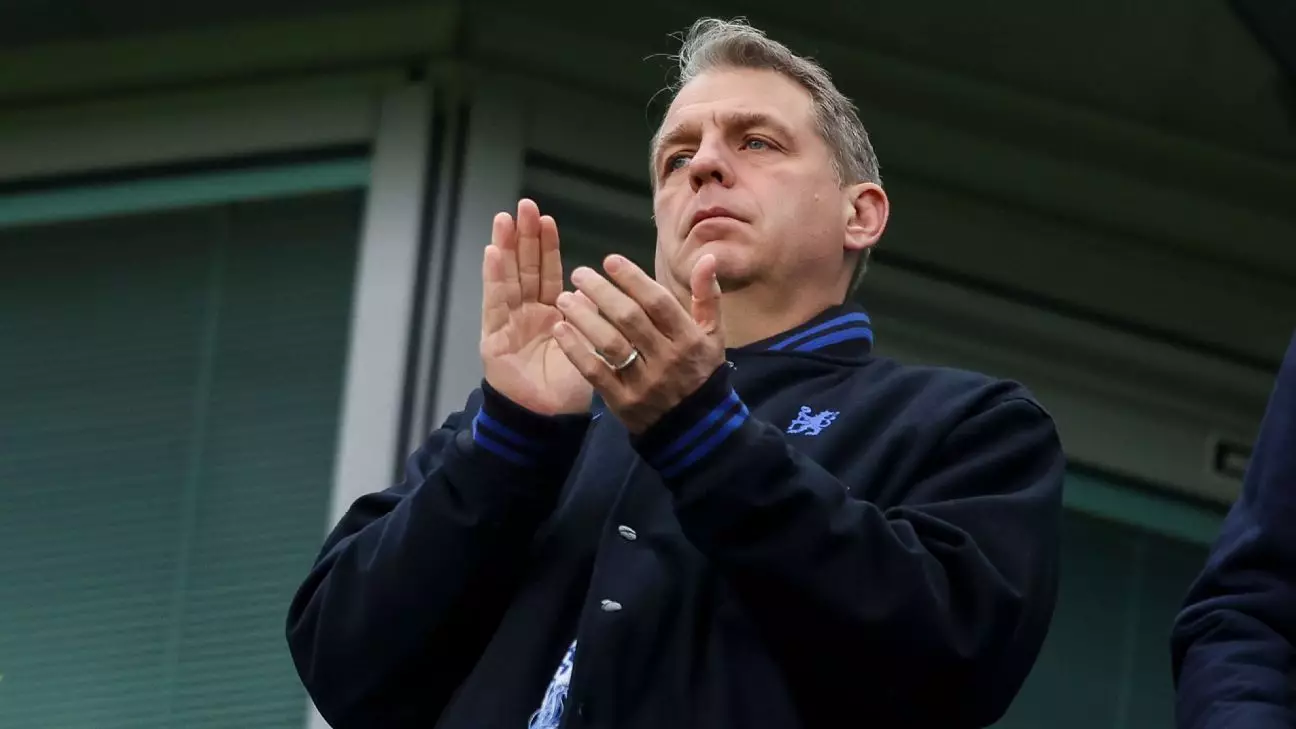The recent uproar among Chelsea supporters has ignited a significant controversy surrounding co-owner Todd Boehly’s involvement with a ticket resale platform, Vivid Seats. This situation raises critical concerns not only about the integrity of ticket sales but also about the overarching ethics in sports management. Chelsea fans argue that Boehly’s connections to Vivid Seats, a company identified by the Premier League as an “unauthorised ticket website,” represent a troubling conflict of interest. The implications of such affiliations suggest a stark disregard for the fan experience and the unwritten rules of fair play in the sports arena.
The Illusion of Affordability
The Chelsea Supporters Trust has openly called for an investigation, expressing their frustration over Vivid Seats’ practice of listing tickets at exorbitant prices—often thousands of dollars above their face value. For instance, tickets for an ordinary home game against Ipswich are listed at an astonishing £990 ($1,275), contrasting sharply with Chelsea’s official websites, where high-demand tickets are sold for just £80 ($103). This blatant price inflation not only exploits dedicated fans but also creates a divide within the fanbase, pitting those who can afford inflated prices against those who genuinely struggle to attend games due to financial constraints.
This situation provides a glaring insight into a broader issue prevalent in professional sports today—namely, the growing commercialisation of the game, which risks alienating its very core: the fans. The disparity between the actual ticket prices and those listed by Vivid Seats serves as a stark reminder of how profit motives can overshadow sporting integrity, potentially eroding the roots that sustain clubs like Chelsea.
The Uneasy Relationship Between Ownership and Fan Engagement
Boehly’s dual role as an investor both at Chelsea and Vivid Seats brings forth a troublesome notion of misalignment between club management and supporter interests. The Chelsea Supporters Trust’s statement underscores a significant concern: when someone deeply embedded within the club’s ownership structures has financial ties to a ticket resale platform, it casts a shadow over the club’s commitment to transparency and fair ticketing practices.
This scenario resonates deeply with supporters who view their clubs as community-centric entities rather than mere profit-driven businesses. The very essence of sport is its communal experience; thus, actions that exploit fans’ devotion threaten the foundational values of loyalty and fair competition.
The Call for Accountability and Change
As calls for an investigation intensify, this incident serves as a pivotal case study regarding the need for stricter regulations surrounding ticket sales in the Premier League. Given that the league itself has warned fans against unauthorised sources, it raises questions about how enforcement of these guidelines can be improved. Supporters are looking for accountability, not just at the level of individuals like Boehly, but across the entire framework that governs the sport.
In the wake of this scandal, it becomes crucial for football authorities to reassess their policies and ensure measures are in place that prioritize fans’ interests over commercial gain. Furthermore, the need for ethical ownership must be front and center; the integrity of football as a beloved sport depends on it. As Chelsea navigates this rocky terrain, its true test lies in restoring faith among its supporters while redefining what it means to be a responsible steward of a storied franchise.

